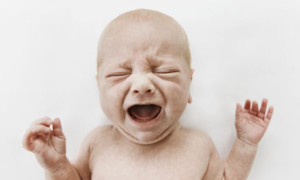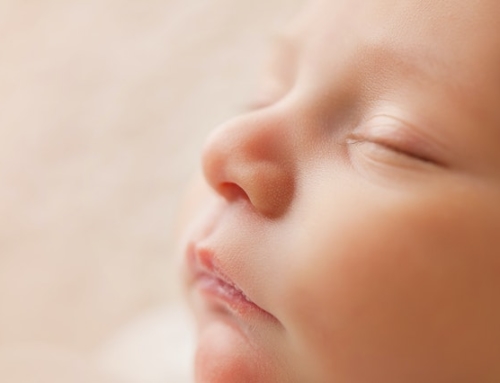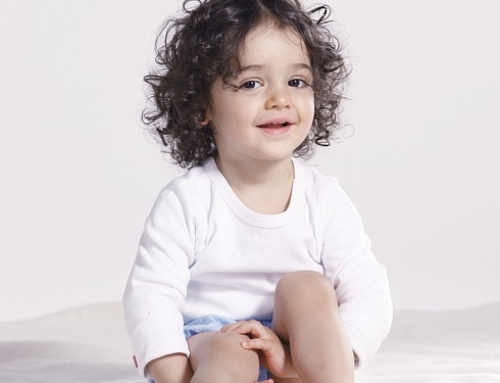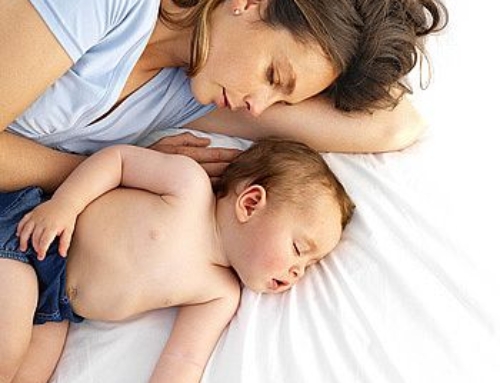 Infant stress is a large part of why many of us proponents against baby training feel this way. The rise in cortisol that accompany babies being left to cry alone without comfort are argued to affect the infant negatively (though the degree is up in the air and quite likely variable based on infant temperament and family history). However, one of the main reasons people use for sleep training is that it allows parents to be calmer, well-rested, and in turn, “better” parents during the day which, they argue, benefits their children, even if it means temporary (hopefully) periods of stress at night.
Infant stress is a large part of why many of us proponents against baby training feel this way. The rise in cortisol that accompany babies being left to cry alone without comfort are argued to affect the infant negatively (though the degree is up in the air and quite likely variable based on infant temperament and family history). However, one of the main reasons people use for sleep training is that it allows parents to be calmer, well-rested, and in turn, “better” parents during the day which, they argue, benefits their children, even if it means temporary (hopefully) periods of stress at night.
The other day research came out of UCSF which was published in Psychological Science (a preeminent journal) which found that babies do indeed “catch” stress from their caregivers First let us be clear that there isn’t too much new in the research in that what the authors are describing is synchrony which has been found and highlighted in mother-infant research and has actually been related to the development of self-regulation[2] and secure attachment[3]. What synchrony is more generally is the correlation between mother and infant physiological responses, or rather how “in tune” they are with each other. So new findings showing us infants respond to maternal stress isn’t actually very “new”. Infants have always responded to maternal stress so long as they have this synchrony with their mother. (And notably, although the research has looked at mother-infant synchrony, it is really about caregiver-infant synchrony.) What we need to remember is that this synchrony is highly related to positive outcomes for infants, even if it means some increases in stress responses due to the stress of a caregiver. The question that remains is how much stress pushes those positive outcomes away. To that we have no idea. However, the question at hand if sleep training would help alleviate the stress infants feel in response to maternal stress from lack of sleep. There are a couple issues here worth exploring, the first of which is how synchrony is influenced by sleep training. The only bit of research we have on that comes from Dr. Middlemiss and colleagues that found sleep training disrupted maternal-infant synchrony, at least temporarily[4] (we don’t know long-term because the study did not go that far, though the researchers are looking to extend this research). Specifically, the researchers found that after three nights of cry-it-out, maternal stress had decreased while infant stress remained high and even during the day, the synchrony once shared between the dyad was now non-significant. If synchrony is the key to things like self-regulation and secure attachment [2-3] then we need to question if sleep training is helping or hindering. Think of it this way: If an infant does not have synchrony and experiences distress (which they do independent of maternal/caregiver distress) then the lack of synchrony means mom/caregiver is less able to decrease her infant’s stress level and help the infant regulate. We have to remember that synchrony works both ways in that it can increase and decrease stress between the dyad. The second issue is to do with the levels of stress mom/caregiver has regularly and how it compares to the stress felt in periods of non-sleep disruption. I know moms report being “happier” after a full night’s sleep, but this doesn’t actually speak to the physiological changes in the body regarding stress and cortisol production. Research has found that mild-moderate sleep deprivation causes either no cortisol changes[5] or changes only in evening cortisol levels[6] and does not correlate with heart rate changes[7] (though none of this research speaks to stress-reactivity or the other problems associated with sleep deprivation which I am not ignoring, but will be discussed further down, and does not speak to severe sleep deprivation which is actually often a sign of other problems and thus sleep training is not appropriate). This idea of sleep training to reduce infant stress that is “caught” from a caregiver also doesn’t speak to how the daytime looks for families. If a caregiver gets better sleep, but the infant is in daycare all day, the infant is exposed to other people’s stress and may not have an individual who can help them regulate. In addition, there are independent influences of stress that affect people outside of sleep disruption and this does not address how those stressors are changed or even diminished with sleep training. I would think the larger concern is for women (and even some men who are primary caregivers) who are experiencing high anxiety (which is often co-occurring with depression) because that high anxiety does lead to heightened experiences of stress reactivity which would be passed on to the infant, but does sleep training help this? This is the third issue. Does sleep training provide improvements for those suffering post-partum depression or other mental health problems? A review by the Infant Sleep Information Source run out of Durham University found that there was a small positive influence of sleep training in mothers who were suffering post-partum depression (PPD), but long-term research on sleep training has found no differences in those that used sleep training and those that did not[8]. Additionally, a systematic review looking at sleep training in the first six months found no alleviation of PPD symptoms after sleep training[9]. Furthermore, the systematic review[6] found that the direction of influence was not disrupted sleep causing PPD, but rather the opposite: PPD causes disrupted sleep. This should be no surprise to anyone working with individuals suffering depression as sleep problems are one of the diagnostic criteria for depression[10]. Therefore, if a mother is suffering from high stress, sleep training in the form of cry-it-out or controlled crying is not likely to positively affect this subset of women (or caregivers). (A reminder that we are talking about likelihoods and promotion of techniques, not what has worked for an individual family. These are two separate issues.) What can we take from this new research? Well, the research shows us two things: (1) How immediate the transmission of a temporary stressful state is passed on to the infant via touch; and (2) That this may be one mechanism by which inter-generational stress is passed amongst families. Regarding point (1), infants in the study showed increases in heart rate akin to higher stress within minutes of being held by their mother after she had undergone a stressful situation. This is congruent with what we know about synchrony and importantly, although infants’ responses increased, the increase was significantly different from a control, but not from mom experiencing a positive event. This is key as it shows more that infants react to mom’s state – positive or negative – but the heart rate change (used as a measure of stress) in the negative condition was not significantly different from heart rate change in positive conditions. And no one would argue we need to remove children from parents when they are happy, right? The second part, which seemed to be the impetus for the research, is more interesting in my opinion. The researchers argue that the passing of stress via synchrony is one way in which we see families continue in the same stressful patterns. This seems to me to be more along the lines of epigenetics: How our environment is shaping the expression of genes. Caregivers who experience a lot of stress are likely to pass that on to their infants who may then grow up with greater stress-reactivity. There’s no debate on that from me. Again, we return to whether or not non-responsive sleep training would change this. Why not focus on providing support to families to help reduce their stress? Are there families for whom stress is higher due to severe sleep deprivation? Absolutely and we know that severe sleep deprivation is linked to a type of chronic stress reaction in the body[11]. However, as found in the research[8-9], sleep training rarely fixes the problem long-term and this is something we must be aware of. One reason is that often sleep disruption (especially severe sleep disruption that falls outside of what we might consider biologically normal for an infant – though even what is “normal” will vary infant to infant) is a symptom not a cause. Sleep disruption tells us something else is wrong and parents need to be looking for other signs to discover what is leading to the lack of sleep they are getting. (You can read about possibilities here.) But also sleep training fails to address the problems for the family which are often rooting in a lack of support. If we want to help families, sleep training should not be the go-to answer, support for them should be. Even when sleep disruption is not as severe and thus likely biologically normal, families often look for ways to get more sleep than they are currently getting. This is not surprising in societies where people return to work too early, there is limited help and support available for families, and parents feel the weight of their myriad responsibilities on their shoulders. However, there are gentle ways to help guide infant and child sleep when it isn’t working for the family. It will often not get you 12-hours of uninterrupted sleep because for many kids that’s not biologically normal (though there are some who will naturally do this and this is their normal), but these methods will help increase the length of a sleep period and can reduce the number of waking. (You can read about these solutions in the links section at the end of this piece.) In sum, stress may be “caught” by infants, but sleep training that leaves an infant to experience stress and trauma (yes, it is traumatic, even if short-lived) on his/her own is not a solution. In fact, we must question if there is even a “problem” to begin with or if this synchrony is a biological adaptation… if it’s the latter, we need to be focusing on family-oriented solutions that maintain this synchrony, not “solutions” that put the brunt of the negativity on the weakest and smallest individual. [Image Credit: Unknown]
[1] Waters SF, West TV, Mendes WB. Stress contagion: psychological covariation between mothers and infants. Psychological Science 2014; DOI: 10.1177/0956797613518352. [2] Feldman R. From biological rhythms to social rhythms: physiological precursors of mother-infant synchrony. Developmental Psychology 2006; 42: 175-88. [3] Feldman R. Parent-infant synchrony and the construction of shared timing: physiological precursors, developmental outcomes, and risk conditions. Journal of Child Psychology and Psychiatry 2007; 49: 329-54. [4] Middlemiss W, Granger DA, Goldberg WA, Nathans L. Asynchrony of mother-infant hypothalamic-pituitary-adrenal axis activity following extinction of infant crying responses induced during the transition to sleep. Early Human Development 2012; 88: 227-32. [5] Redwine L, Hauger RL, Gillin C, Irwin M. Effects of sleep and sleep deprivation on interleukin-6, growth hormone, cortisol, and melatonin levels in humans. Journal of Clinical Endocrinology & Metabolism 2000; 85: 3597-603. [6] Leproult R, Copinschi G, Orfeu B, Van Cauter E. Sleep loss results in an elevation of cortisol the next evening. Sleep 1997; 20: 865-70. [7] Kato M, Phillips BG, Sigurdsson G, Narkiewicz K, Pesek CA, Somers VK. Effects of sleep deprivation on neural circulatory control. Hypertension 2000; 35: 1173-5. [9] Douglas PS, Hill PS. Behavioral sleep interventions in the first six months of life do not improve outcomes for mothers or infants: a systematic review. Journal of Developmental Behavioral Pediatrics 2013; 34: 497-507. [10] American Psychiatric Association. Diagnostic and Statistical Manual of Mental Disorders: DSM-V. Books4US, 2013. [11] McEwan BS. Sleep deprivation as a neurobiologic and physiologic stressor: allostatis and allostatic load. Metabolism 2006; 55: S20-S23.






Working as a substitute nanny afternoons this week. Child is 19 mths old, three weeks into transition into 2 mornings a week daycare (regular nanny is on holiday). B has come to my mom&baby/nanny&baby classes since she was 6 weeks old, mostly with her beloved nanny.
B was handed over at classroom door by a wonderful ex-colleague of mine, child was a little sad. Next thing I know Lead toddler teacher rushes out, past her assistant (!) for hugs, kisses etc – causes child clutching her and sobbing!
After 4 years working there (remember my email you posted and called ‘Open letter on child care’ June 2014?) I am more and more coming to terms with caregivers causing stress while portraying themselves as awesome! The ex-colleague is trained in her field and I am totally clear as to her most genuine passion for babies and young children – she doesn’t stress children or colleagues.
The Lead teacher has had too many assistants to mention! She causes stress in her staff and the children in her classroom. I suggest that unless or until the children leave or are removed their total bodily daily stress will remain.
Just guessing here: I think the effect is lifelong and although the person fades in memory the treatment remains.
Conversely I tell kind staff who leave daycare work that babies always carry the kindness of their early caregivers in their souls.
John Bowlby carried the kindness (and the sadness of his loss) of his beloved nanny; she left the family when he was 4 yrs old. My mother was well into her 80s and still spoke of her two grandmothers – one was extremely kind and tender, the other scary!
We always remember stress too. Thanks Tracy – you always extend my brain!
[…] can view Gina’s website here. Evolutionary Parenting’s article on sleep training, view here. If you formula feed (or even breast feed) you can get FREE advice here. For FREE breast feeding […]